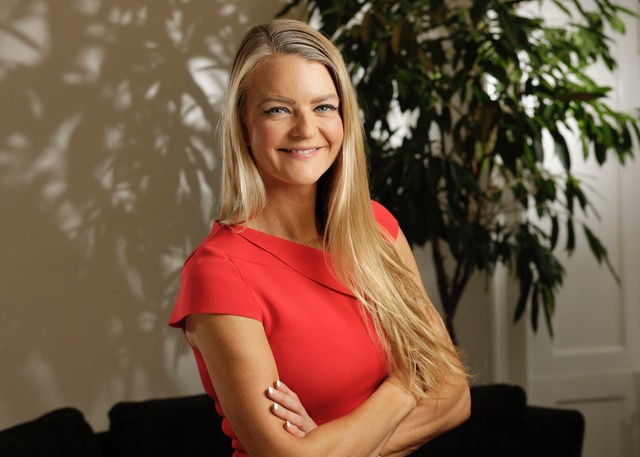Betsy Williamson: Investment’s ethical revolution must not leave Scotland swithering

Betsy Williamson
Betsy Williamson, founder and managing director of Core-Asset Consulting, highlights the increasing importance of sustainable investing, spurred by the pandemic, and is urging those within the sector to upskill, or risk becoming defunct.
Sustainable investing has “come of age” thanks to the pandemic, with recruitment experts across Scotland’s financial sector urging those within it to upskill in order to thrive in a changed landscape – or risk becoming obsolete.
Core-Asset Consulting, which is dedicated to recruitment for the industry north of the border, is warning of a growing knowledge gap as funds are increasingly held to account and placed under scrutiny for their contribution to the “social good”.
Throughout 2020 and 2021 socially responsible investment (SRI) has been under the spotlight, frequently breaking into mainstream news – such as when investors pulled out of Boohoo after alleged Covid breaches, as well as growing call for divestment from fossil fuels and heavy polluters.
Conversely, Baillie Gifford cashed in on £13bn of Tesla shares, demonstrating that SRI was no longer the preserve of niche operators – or applied to investments in small businesses.
Now, with SRI funds consistently outperforming traditional – and significant pension funds committing to investments that demonstrate they are “part of the solution not the problem”, the recruitment experts are heavily recommending those in the sector give it due focus.
SRI and Environmental and Social Governance (ESG) have entered common business language in the last year, they are well and truly part of the mainstream.
Much of it is driven from the climate emergency and an acknowledgement of the global impact of investment. Firms are under increased scrutiny and are expected to be a net positive to society.
Gone are the days when fund managers can purely chase profit above all else. Of course, it is and always will be crucial – but it has to be done responsibly.
It is a complex picture though. Genuine SRI requires an intensive focus and huge amounts of specialist work, ensuring that investments and their entire supply chain demonstrate the good ethics that may appear on the surface.
Covid clearly shone a light on the interconnected nature of our planet. With Global Asset Managers collectively invested in multiple assets across numerous sectors, a global failure would be catastrophic on portfolios.
Scotland has a long and proud history in asset management, it is crucial our people are at the forefront of this seismic change.
The pressure for fund managers to comply with ESG principles now has a pincer effect, with increased expectation from clients and investors for companies to meet changing perceptions on green, renewable and climate-based issues, with UK, EU and global directives on climate change.
Universities and training bodies have been quick to respond to the growth of SRI and ESG, with dozens of dedicated courses launched in recent years for those at any stage of their careers, from the likes of London Business School, The University of York and The University of Oxford.
ESG has reached a critical mass. Heading into the pandemic we were in a transitional period with younger generations becoming more socially conscious with awareness of the environmental catastrophe growing.
The challenge for those in the sector now is to be able to correctly identify the “greenwashers and greenwishers”, those that espouse positive environmental actions to cover up more sinister policies – or those simply naïve to the reality. This requires real expertise.










